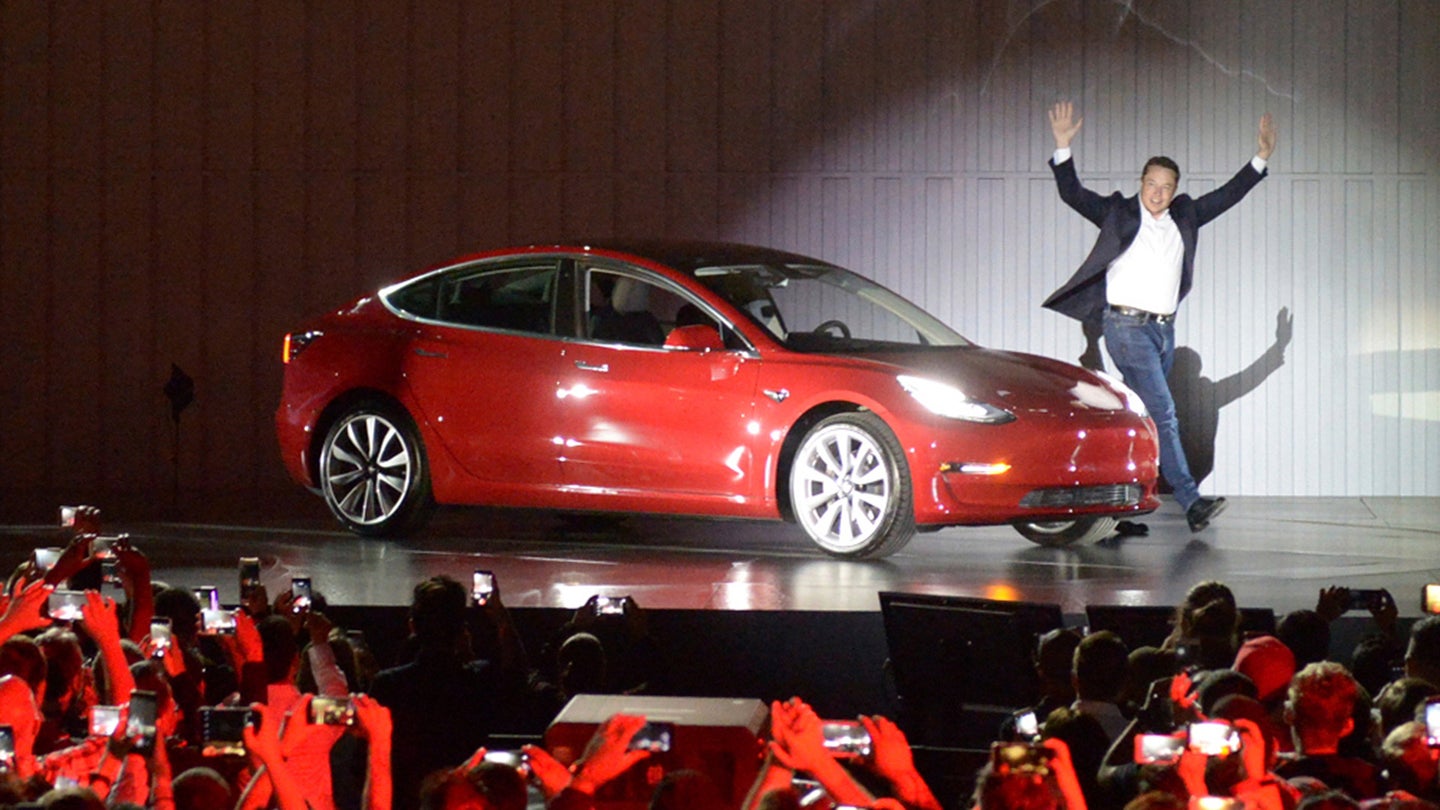Will Tesla Go Down As the Tucker of the 21st Century?
Technological advancement is no guarantee of success.

The history of the automobile is littered with the names of brands that created brilliant vehicles far ahead of their time, yet still fell beneath the ever-grinding march of capitalism. Tucker, DeLorean, De Tomaso—they're just three among many automakers whose visionary products were unable to save them from financial distress that wound up killing or crippling them.
Making the budget balance has always been tough for carmakers, and it's not getting any easier; these days, the high barriers to entry mean even giant multinational automakers have found themselves seeking one another for support. (Just ask Sergio Marchionne, who's been begging someone to merge with or acquire Fiat Chrysler—or even buy up some of its more valuable brands.) For smaller companies, raising the money to compete in this rarefied realm can be all but impossible.
Tesla, so far, has largely proven itself the exception to that, ever since Elon Musk took the reins back in 2008 and began leading the company down its current, ambitious path. Under his guidance, Tesla has gone from a small outfit rebuilding Lotus Elises into battery-powered sports cars to an EV goliath, with a market cap rivaling General Motors or Ford and the world's most popular electric luxury cars in the Model S and Model X.
But in light of the company's admission that it fell well short of its planned Model 3 production number for the third quarter of 2017, it seems a fair time to ask: Will Tesla find itself sharing the fate of, say, the Tucker Corporation?
While the two may differ greatly many ways, there are also plenty of similarities between Tesla and Tucker (as well as between their leaders) that are easy to spot. Like Elon Musk's vehicles, the Tucker 48—also known as the Tucker Torpedo—was very much a car ahead of its time. When it launched in 1948, Tucker's car came with early forms of crumple zones, adaptive headlights, and a padded dashboard—high-tech features for an era when Detroit was still breaking free of the shackles of the World War II era. The subframe holding the engine and transmission was designed to be quickly dropped from the car so a new engine could be swapped in, much like the way the Model S's battery was designed for rapid swapping. Founder Preston Tucker also had plans for other then-futuristic features, such as self-sealing tires, fuel injection, and disc brakes—much as Elon Musk has made his intentions of adding self-driving capabilities to his company's cars.
Yet in spite of the Tucker 48's advanced features in a post-war market hungry for new vehicles, the car never took off. A bad bout of early publicity brought on by a negative early story on the vehicle hurt the brand's reputation, and a federal investigation into the company only made things worse. Though all charges were eventually dropped, the damage was done; just 50 production Tucker 48s were completed before the company went under due in large part to the flood of bad press.
Tesla's case is admittedly more complex than Tucker's. For starters, Elon Musk's car company has actually managed to crank out a fairly successful product in large numbers. More importantly, Tesla's finances are in far better shape than the likes of most other upstart car companies of the last few decades. (See: Future, Faraday, et. al.) While the company has rarely managed to turn a profit, that's in large part due to the company's aggressive growth strategy, not a failure to sell vehicles; Tesla has placed more than 200,000 electric cars in the hands of customers over the company's lifespan, with most of those sales occurring in the last couple years. And the company's choice of powertrains gives it an advantage many other carmakers of the past haven't had: Electric cars are, by nature, simpler to manufacture than gasoline ones, thereby reducing the complexity. (Still, that hasn't stopped Tesla from falling behind its claimed production goals on more than one occasion.)
So it seems unlikely that Tesla will wind up going down in flames the way Tucker did, considering the strides it's already made. But that's not to say it'll maintain its golden status forever, given the financial strains of the automotive market and the incipient arrival of a host of highly-competitive EVs from other carmakers. Indeed, many other well-known car companies would presumably love nothing more than to snap up Tesla should its value drop to a more reasonable level. (Jaguar-Land Rover parent company Tata, for example, has expressed interest in picking up a new premium automotive make, and it's hard to think of a bigger prize in that realm than the company largely seen as paving the way for Jaguar's own electric luxury vehicles.)
Ultimately, it's impossible for anyone to know where Tesla is headed. Even the gurus of Wall Street are divided; this week alone saw separate financial analysts predicting the company's stock would both rise by 40 percent and fall by 40 percent within the next year. Given the uncertainty in the world these days—especially in the automotive sector—it's not hard to see the company selling its battery tech to Panasonic and its car brand to the likes of Toyota or Tata by the mid-2020s, giving Musk the capital he needs to pursue his many other passions.
Then again, who knows? Elon might just surprise all the cynics all over again.
